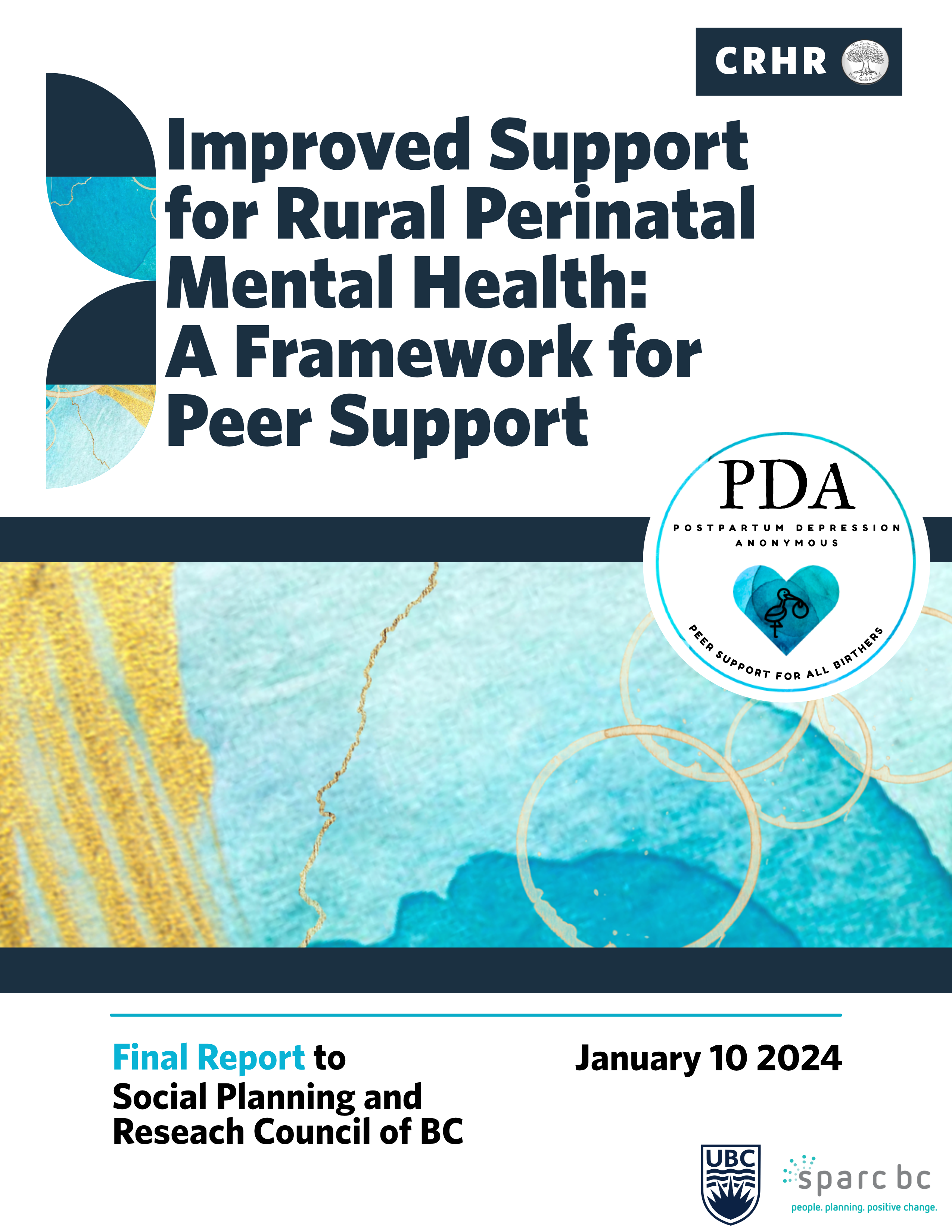Reaching birthers where they’re at: A peer support program for the perinatal period

Appropriate, diverse, and sustainable supports for individuals during the perinatal period are essential to optimize perinatal health. However, up to 23% of birthers in British Columbia report feelings consistent with post-partum depression or anxiety disorders, many of who do not have appropriate access to care. The need for supportive care is especially relevant for residents of rural communities who may have limited options for local care. Moreover, accessing care poses greater challenges for rural birthers who don’t fit into predominant or privileged social categories, such as those who are low income or have pre-existing mental health illnesses.
This gap in services is demonstrated by previous research conducted with rural birthers, many of whom reported feeling excluded in traditional health spaces (Hards, 2022). There is a need for additional supports that are not only low-barrier but no-barrier, with an emphasis on inclusion and safety for traditionally disenfranchised birthers. Peer support was identified as an effective, accessible, and strengths-based approach to address gaps in rural, perinatal mental health care.
View our Final Report
The Program Framework:
Postpartum Depression Anonymous (PDA) is a unique peer support program for people in the pre and postpartum period. As an adapted 12 Step program, PDA was designed to take the strengths of an established peer support framework, adapt it to the perinatal context, and enhance its cultural safety and applicability to birthers from all walks of life. Peer support during the perinatal period has been shown to reduce depressive symptoms, increase social integration, and improve parenting confidence. Drawing on the wisdom gained through shared and embodied experiences, the program offers all birthers a non-judgemental space to accompany one another through the challenges and joys of the perinatal period.
By peers, for peers
The PDA project team includes a community partner with experience of postpartum depression and an academic partner with a background in rural health and maternity research. Program development is informed by an Advisory Committee, made up of six local community members, with varied experiences of perinatal mental health challenges, involvement in local social services, Indigenous community programming, and early childhood development. This ensures that the program is not only for rural birthers but also by rural birthers.
The program is facilitated by the community partner. Weekly meetings are hosted over Zoom to increase program accessibility for individuals with young children, limited means of transportation or living in remote locations.
There is a built-in evaluation component to the program to ensure it is meeting the needs of its participants. Data will be gathered through voluntary interviews with peer participants and Advisory Committee Members and through a survey at the conclusion of the project, to understand participants’ perceptions regarding program accessibility, inclusivity, and efficacy. The analysis will inform recommendations for further interventions designed to support perinatal mental health needs in rural communities.
PDA Project Phases:
(1) Adaptation and development of the peer support framework and materials in collaboration with the community-based advisory committee;
(2) Implementation of the framework through the PDA pilot group; and,
(3) Evaluation of the pilot project through feedback from end-users and community advisory committee members.
Working from the strengths of an established peer support framework, the PDA project is a robust support system for perinatal birthers seeking enhanced mental health support. We anticipate that this project will be scaled to support birthers in rural communities across British Columbia and beyond.
To learn more about our program or to partner with us in our pursuit of no-barrier peer support, please contact the Program Coordinator, Audrey Cameron at audrey.cameron@ubc.ca.
Research Team:
April Hards, Citizen Partner, Co – Lead Researcher
Dr. Jude Kornelsen, PhD, Academic Partner, Co-Lead Researcher
Audrey Cameron, Program Coordinator, Academic Researcher
Simrat Dial, Program Assistant
